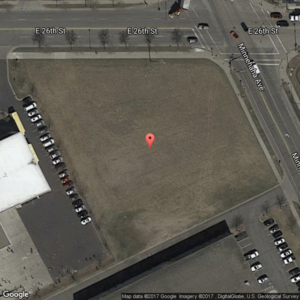BY ELINA KOLSTAD
April has finally broken through the snowpack in Minneapolis; in a similar way signs of hope are sprouting up in a political system still recovering from the regressive policies of Trump and his MAGA movement. I have been proud to see Minnesota making national news. First when Gov. Walz signed a bill that will provide free breakfasts and lunches to all students, a literal investment in our future given that kids learn better when they’re not hungry. The second was about HF146, which will protect families from other states from family separation if parents seek gender-affirming care for their children in Minnesota. This would make Minnesota a trans sanctuary state. the bill passed the Minnesota house, is now in the senate, and Gov. Walz has committed to signing it. The good news continued into April with the elections in Wisconsin, where the left-leaning judge Janet Protasiewicz won a crucial seat on the state Supreme Court, giving hope for striking down their 1849 abortion ban and perhaps fixing their extremely gerrymandered districts. More good news came from Chicago, where former teacher Brandon Johnson was elected mayor.
But there is still formidable anti-democratic sentiment in our politics. The outright rejection of our form of democracy seen in Tennessee when two Black representatives, Justin Jones and Justin Pearson, were kicked out of their seats for protesting against gun violence is sobering, although not surprising, from the state that brought this country the KKK. Locally, Minneapolis is stubbornly pursuing plans in willful opposition to community feedback. This has been on full display in the atrocious way the city has handled the former Roof Depot site and proposed location of the East Phillips Urban Farm.

2600 Minnehaha Ave.
Now, the city is taking a similar stance in regard to the 3rd Precinct building. In a letter to constituents, Ward 2 Council Member Robin Wonsley wrote of her efforts to secure community engagement about the future of the former 3rd Precinct building site at Lake Street and Minnehaha Avenue, with the aim of healing the community. In spite of her efforts, the city recently took the money allocated for this process and instead is using it to determine the new site of the 3rd Precinct building. The city has created a survey that only allows people to participate if they select one of the two desired locations: the former 3rd Precinct site or 2600 Minnehaha Ave. Some public meetings have been held on the topic, but once again the city seems determined to push through their own priorities with a shiny veneer of proscriptive “public engagement.”
Instead, we need to be having conversations about what the community wants and needs. The city thinks that they can push through a precinct location of their preference by tapping into constituents’ fear of crime, and that the anger within the community about the actions of the Minneapolis Police Department have sufficiently died down by now. But I hope that we can start having real discussions about what actually makes us safer and what we are afraid of.
Mayor-elect Johnson of Chicago has done an excellent job of communicating on the issue of policing. In his campaign he talked about the familiar points that we need more social workers and community support for the many situations that police are thrown into without proper training to tackle. He also made a simple but profound distinction about what we need police to do; he plans to hire more detectives because Chicago has a shockingly high rate of unsolved crimes.
This was a brilliant move to open up the discussion of what we are expecting the police to accomplish and the stereotypes we have about policing. When we talk about “policing,” we always seem to discuss one form of policing, the beat cop (an unfortunately apt name). We think of police who patrol the streets. But public safety is about more than that. As many people have pointed out, a large number of issues that American police deal with are more suited to social services intervention than to police officers on patrol. In European countries like Germany and Switzerland, where social services are provided through government safety net programs and drug use is largely decriminalized, they even have “garbage detectives” who investigate people who illegally dispose of waste, usually bulk items such as refrigerators. We should examine the specific criminal problems we have in our communities and have honest conversations about what is likely to combat them most effectively.
We can do better. We don’t have to choose between crime-ridden streets and racist abusive police. We can work towards a future that has safer streets AND respects all of our humanity, but we must resist the temptation to autopilot ourselves into “business as usual.”
See also:
A failure to communicate? – Southside Pride
Community conversations about 3rd Precinct building – Southside Pride






















